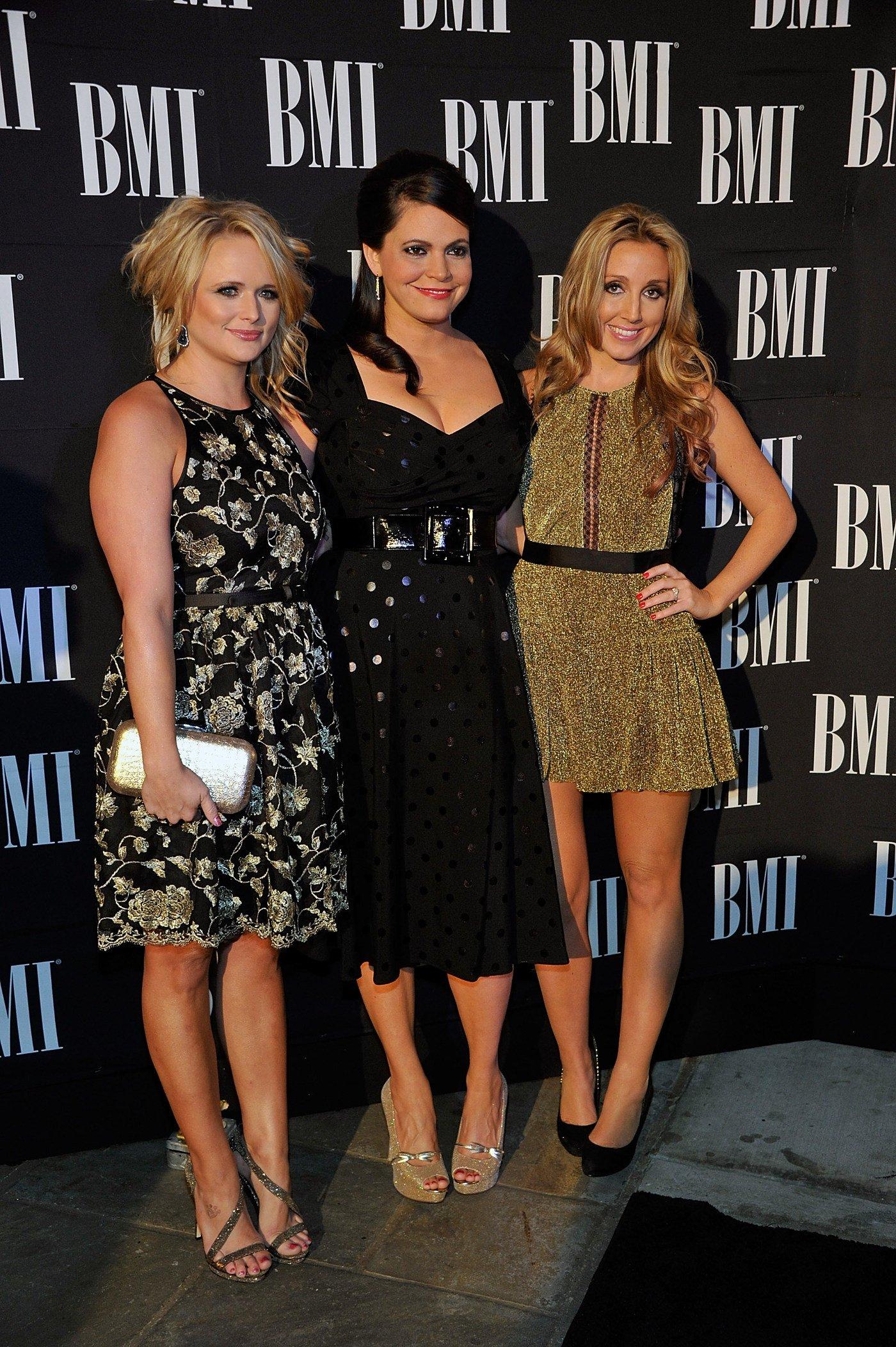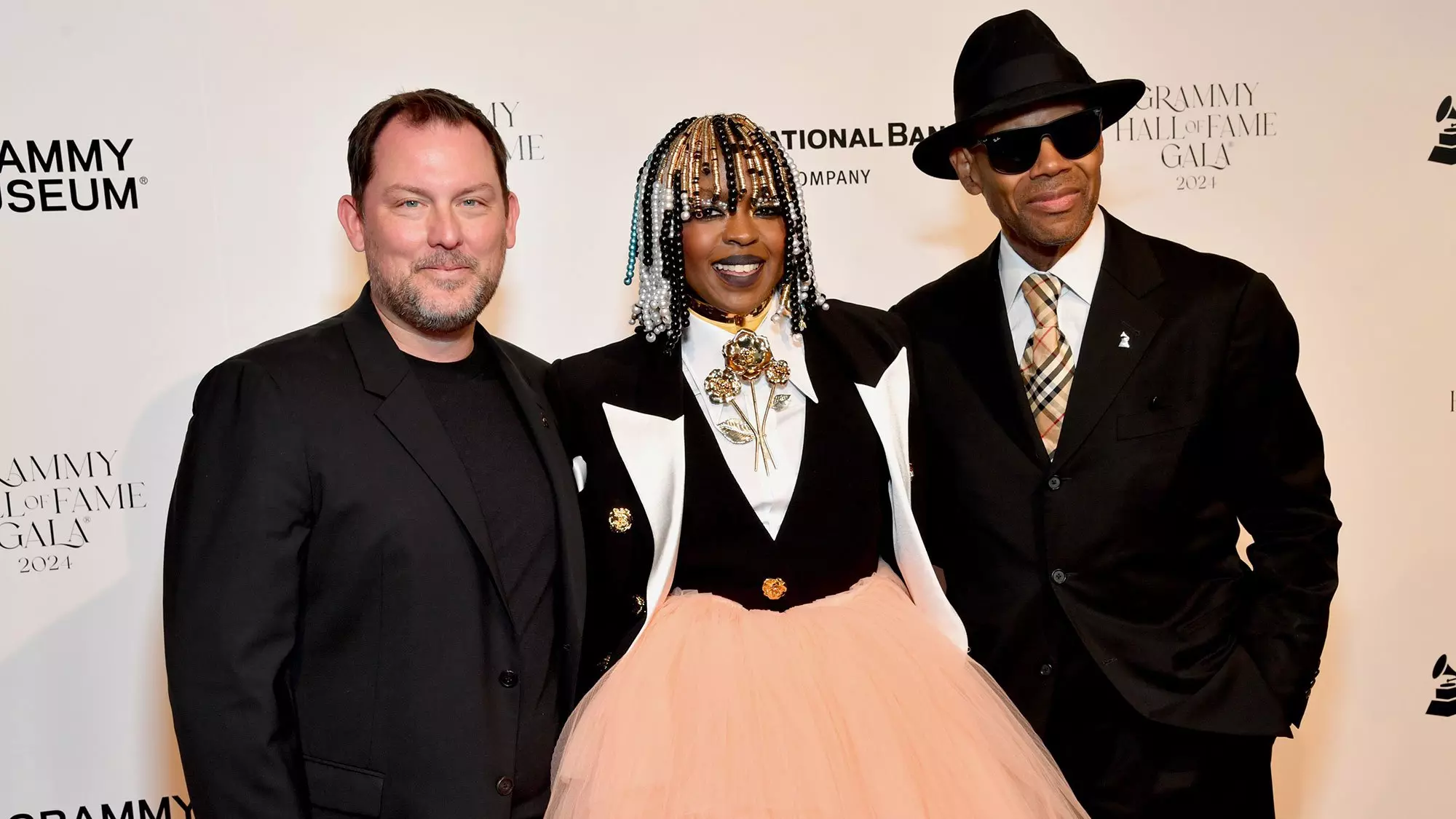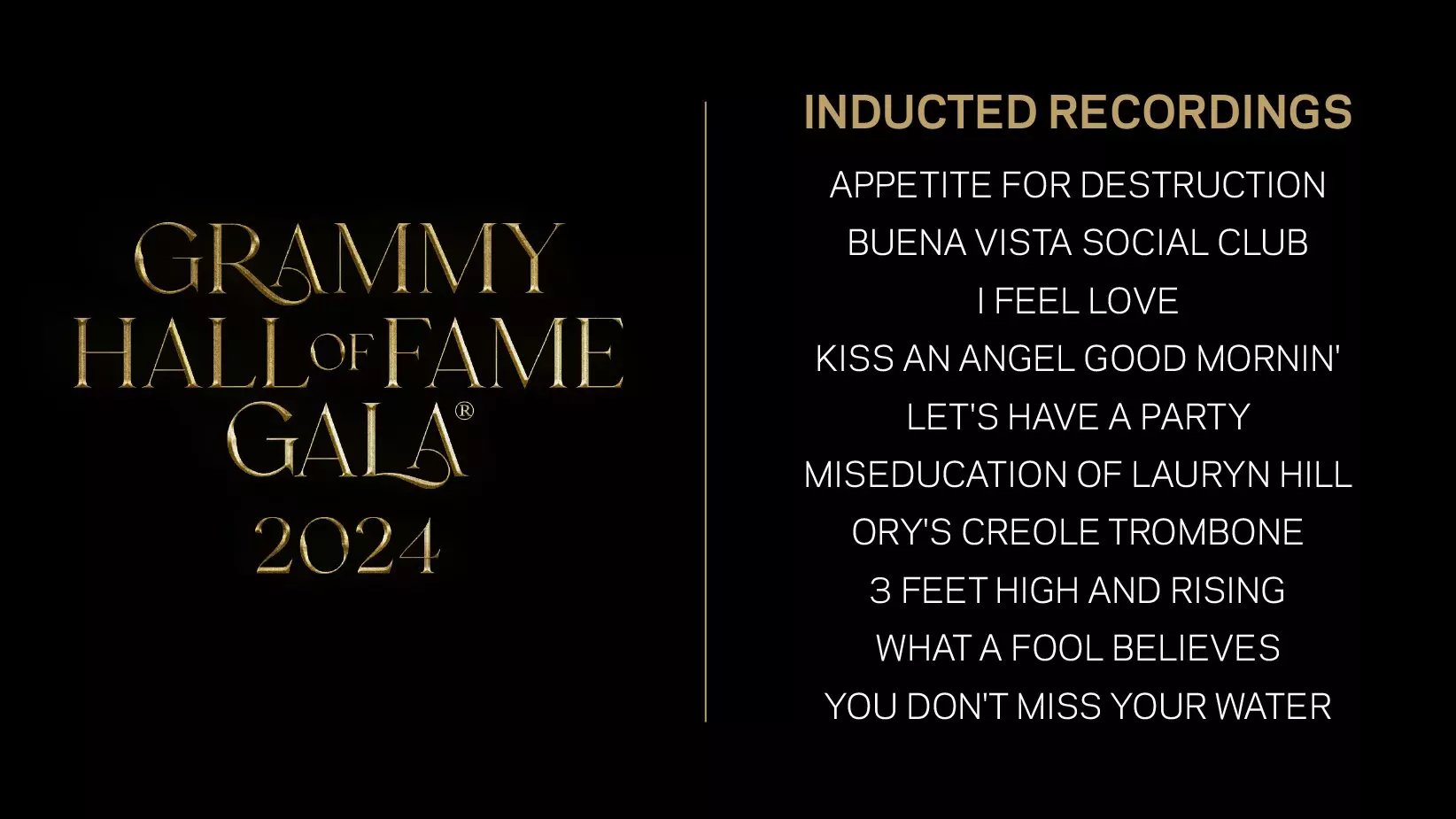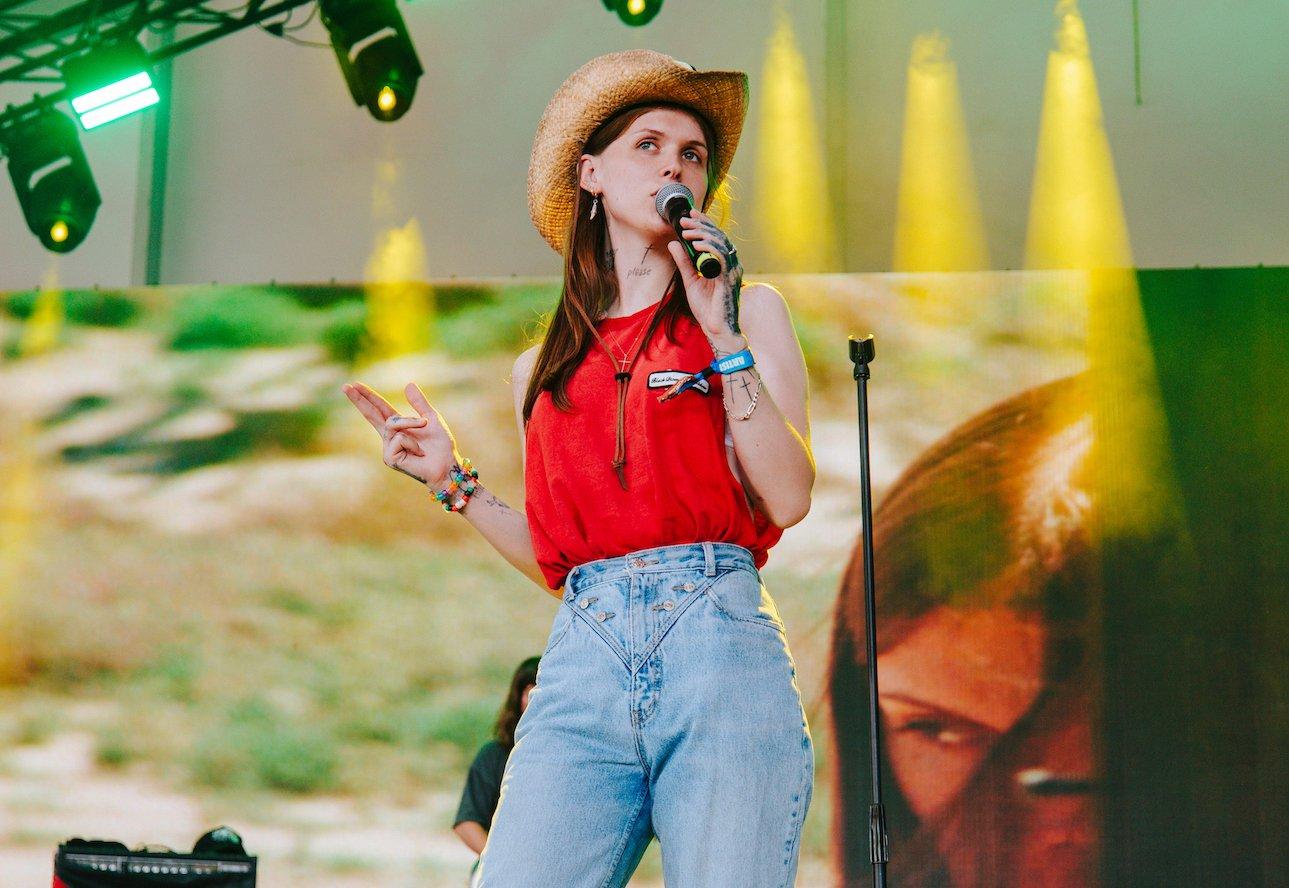Photo: Frederick Breedon IV/WireImage

Pistol Annies
news
Dan + Shay, Pistol Annies And More In 2019 CMA Fest Lineup
GRAMMY winners include Miranda Lambert, Little Big Town, Tim McGraw, Maren Morris, Carrie Underwood, and Keith Urban
61st GRAMMY Awards winners Dan + Shay and Pistol Annies are among the artists heading for Nashville on June 6–9 for 2019 CMA Fest. The array of emerging talent on the Budweiser Forever Country stage and Chevy Riverfront Stage demonstrate country's vitality. Nissan Stadium hosts better-known acts including GRAMMY winners Miranda Lambert (also in Pistol Annies), Little Big Town, Tim McGraw, Maren Morris, Carrie Underwood, and Keith Urban.
<iframe width="620" height="349" src="https://www.youtube.com/embed/Dxuz0yxGO_E" frameborder="0" allow="accelerometer; autoplay; encrypted-media; gyroscope; picture-in-picture" allowfullscreen></iframe>
Previously nominated artists coming to Nissan Stadium include Ashley Monroe, who performs in Pistol Annies with Lambert and Angaleena Presley, as well as Kelsea Ballerini, Brothers Osborne, Dierks Bentley, Luke Combs, Florida Georgia Line, Rascal Flatts, and Thomas Rhett. Also appearing are Kane Brown, Luke Bryan and Old Dominion.
The Country Music Association's CMA Foundation and its supported music programs benefit from ticket sales, available at the CMA Fest website. Some four-day passes to Nissan Stadium are still available.
Country Radio Plays Soar For Kacey Musgraves After GRAMMY Wins

Photo: Erika Goldring
list
5 Artists Who Graduated From GRAMMY Camp: Chappell Roan, Maren Morris, Blu DeTiger & More
As GRAMMY Camp 2024 winds down, check out this list of leading figures in the music community who count themselves as alumni.
GRAMMY Camp is almost a wrap — but the musical memories will last a lifetime. On Saturday, July 19, the weeklong summit for students interested in music careers will wrap after six enlightening days.
Held at the Village Recording Studios in Los Angeles, GRAMMY Camp's faculty of music professionals — along with guest professionals — have offered precious insight to give campers the best chance at succeeding in their career of choice.
The available Camp tracks include Audio Engineering, Electronic Music Production, Songwriting, Music & Media, Music Business, and much more. Many alumni of this enriching crash course have risen to prestigious positions across the musical landscape.
As the Recording Academy signs off on yet another elevating GRAMMY Camp, check out this list of five major artists who cut their teeth at the almost 20-year institution.
Maren Morris
The future country wunderkind attended GRAMMY Camp for its very first iteration, back in 2005. There, the then 15-year-old met undisputed leaders in the music community, like Jimmy Jam and Paul Williams — which set the course for her incredible career to come.
In the years since, Morris has won a GRAMMY, received 17 GRAMMY nominations, and topped the Billboard country charts. She also joined the country supergroup the Highwomen with fellow juggernauts Brandi Carlile, Natalie Hemby and Amanda Shires.
At this year's GRAMMY Camp, Morris returned as a guest artist. What's her advice to budding artists? "Just stick to being authentic," she told RecordingAcademy.com, "and people see that, no matter what time they arrive to the party for you."
Along the way, "Find people that listen to you," Morris added, "but also push you and your creativity to new areas of yourself."
Jahaan Sweet
In 2009 — four years after Morris' GRAMMY camp tutelage — the formidable Jacksonville, Florida, producer, songwriter and pianist Jahaan Sweet attended GRAMMY Camp.
At the outset, he was thrilled to come to L.A. for the first time and network with like-minded folks in music. "I knew that my skill set wasn't that great," he told GRAMMY.com a decade later, "but it was just so good to be around people who were all there to learn and create together.
"I feel like that's the biggest takeback I have of GRAMMY Camp," he continued. "It was amazing to have all those people together under one roof, all in the same vicinity, all doing creative things." Working with GRAMMY Camp Faculty Director Jason Goldman was one clear highlight for him: "He's a great guy, and he was such a good, carefree band director."
By now, Sweet has worked with Kehlani, Kendrick Lamar, Drake, Eminem, the Carters, Ty Dolla $ign, A Boogie Wit Da Hoodie, and many more; he's been nominated for three GRAMMYs and won one. And as a launchpad, GRAMMY Camp helped make all these accomplishments possible.
Watch now: Producer Jahaan Sweet Talks Making Records With Boi-1da, Drake & More | Behind The Board
Chappell Roan
In 2024, Chappell Roan is very, very famous — as she admits, a little more famous than she would like right now.
Regardless, the self-christened "Midwest Princess" — whose moniker was ensconced in the title of her 2024 breakout album — has wholly earned her plaudits, including opening for Olivia Rodrigo on her GUTS tour. And she can trace a line directly back to a decade ago, in 2014, when she attended GRAMMY Camp.
"I didn't do my senior year. I didn't go to prom. I didn't go to graduation," Roan explained to Rolling Stone in 2022, about her early musical life. "I missed a lot of what would have been the end of my childhood to do this job," she says.
For those like Roan, who are dead serious about making the music thing work, GRAMMY Camp is an ideal fount of experience and inspiration.
Read more: Chappell Roan's Big Year: The Midwest Princess Examines How She Became A Pop "Feminomenon"
Jensen McCrae
Another shout out to GRAMMY Camp's Class of 2014: that's the year that indie-folk-pop favorite Jensen McCrae put in her time, at the tender age of 16.
"I started playing and writing music as a little kid, and I've known I've wanted to be creative for my whole life," McCrae told VoyageLA, adding that she began taking songwriting and performing seriously in high school.
"[Being a] half-white, half-Black girl who spent her whole life in academically cutthroat private schools while trying to pursue a career in the arts gives me a unique perspective on the world," she explained. Which made McCrae an live antenna at GRAMMY Camp, picking up signals left and right.
The 10-day experience cemented the Angeleno's desire to attend college at the University of Southern California's Thornton School of Music — where she got a full ride, and was off to the races. These days, she's fresh off an opening slot for Noah Kahan on the We're All Be Here Forever Tour.
Blu DeTiger
"I remember thinking 'So many girls play guitar and sing,'" the TikTok-flourishing bass phenom Blu DeTiger told Spin in 2022. "I was like, 'I want to be different. I want to do something unique.' And I've never looked back."
Part of GRAMMY Camp's message is: dare to be different, to be you. Which made DeTiger an ideal student, when she enrolled in 2015; today, she's leading the charge for a generation of young, innovative bassists of all backgrounds.
Read more: Love Thundercat? Check Out These 5 Contemporary Bassists Keeping The Flame
Along with Morris and New Jerseyan singer/songwriter Jeremy Zucker, DeTiger returned in 2024 as a guest artist — bringing the musical education process full circle, as she continues to redefine how the bass is presented in the social media era of music.
The 20th annual GRAMMY Camp celebration is running now and concludes with the GRAMMY Camp Finale Student Showcase on Saturday, July 20, at the Ray Charles Terrace at the GRAMMY Museum.
Learn more about GRAMMY Camp here — and we'll see you next year in Los Angeles!
Explore GRAMMY Camp And The GRAMMY Museum

5 Artists Who Graduated From GRAMMY Camp: Chappell Roan, Maren Morris, Blu DeTiger & More

GRAMMY Museum Partners With HYBE For New K-Pop Exhibit 'HYBE: We Believe In Music' Opening Aug. 2

GRAMMY Hall of Fame Gala Red Carpet Highlights

6 Key Highlights From The Inaugural GRAMMY Hall of Fame Gala Honoring Lauryn Hill, Donna Summer, Atlantic Records & Many More

Explore The 2024 GRAMMY Hall Of Fame Inducted Recordings: Lauryn Hill, Guns N' Roses, De La Soul, Donna Summer & Many More

Photo: The Chosunilbo JNS/Imazins via Getty Images
list
New Music Friday: Listen To New Songs From LISA From Blackpink, Lil Nas X, Kelsea Ballerini, MC Lyte & More
Hot summer days require even hotter tunes. Here are some fresh-out-the-oven songs and albums by Hiatus Kaiyote, Lucky Daye, Headie One, Kaitlin Butts, and more.
We’ve been feeling the heat for a minute now, but summer is finally, officially, upon us.
What do you have on deck to soundtrack it? Perhaps you’re checking out Camila Cabello’s fourth offering, C,XOXO. Or Jxdn’s expectations-bucking new album, When the Music Stops. And there are so many other worthy candidates for your playlist — from Lupe Fiasco’s Samurai to Omar Apollo’s God Said No.
No matter where your stylistic compass points, this Friday release day has got something for you. As you gather your sunscreen and shades, let’s breeze through a cross-section of what’s out there.
LISA — "Rockstar"
K-pop loves its solo releases, showcasing how the various members of a group can shine individually while combining with ecstatic chemistry. Enter LISA, one-fourth of Korean titans BLACKPINK, who's already turned heads with her 2021 debut album, Lalisa.
"Rockstar" is another swing outside her main gig, featuring serrated chiptune production and LISA's commanding rap flow. The gritty, urban, futuristic video is a visual treat, and the chorus's boast of "Lisa, can you teach me Japanese?" is a multilingual flex — as well as a maddeningly unshakeable earworm.
Kelsea Ballerini & Noah Kahan — "Cowboys Cry Too"
The "Peter Pan" heavyweight and four-time GRAMMY nominee Kelsea Ballerini has called 2024 "a new chapter of music." Her collaboration with folk/pop singer/songwriter Noah Kahan, "Cowboys Cry Too," is the tip of the spear.
More than a month after the pair performed together at the 2024 Academy of Country Music Awards, their first recorded team-up is an aching, yearning ballad about breaking down a gruff exterior and revealing true emotions.
"Cowboys cry too/ They may not let 'em fall down in their hometown thinkin' they still got s*** to prove," Ballerini sings in the chorus. "That well runs deep/ But when he's showin' his skin, lettin' mе in, that's when he's toughest to mе."
Lil Nas X — "Here We Go!" (from the Netflix film 'Beverly Hills Cop: Axel F')
"So excited to release the best song of all time this friday!," Lil Nas X proclaimed on Instagram. (And on a Beverly Hills Cop soundtrack, no less!)
"Here We Go!" comes at an inflection point for the "J Christ" singer: "sorry I've been so scared with my art lately," he added in the same post. "I'm coming around to myself again. I will make you guys very proud."
This pro forma banger certainly inspires pride: tenacious lines like "I'm livin' and livin' I wanna die/ They tryna get even/ I'm beatin' the odds" will get under your skin. As for Beverly Hill Cop: Axel F, the Eddie Murphy joint will whiz to your screen July 3 via Netflix.
Lucky Daye — 'Algorithm'
Lucky Daye picked up a win for Best Progressive Album at the 2022 GRAMMYs, for Table for Two. After a slew of nominations for work with Beyoncé and Mary J. Blige, he's investigating the Algorithm.
The single "HERicane" was just a teaser, with songs like "Blame," featuring Teddy Swims; "Paralyzed," featuring RAYE;" and "Diamonds in Teal" expanding on and honing his soul-funk-R&B vision.
"Don't know pickin' sides/ 'Cause I'm rollin' in desire," he dreamily sings in the gently roiling "Diamonds in Teal." "I don't know which lie's true/ Or maybe I do, or maybe I'm you." It's a suitable mission statement wrapped in a stealthily seductive package.
Hiatus Kaiyote — 'Love Heart Cheat Code'
A jazzy, soulful, psychedelic band of Aussies, Hiatus Kaiyote has been wowing audiences for more than a decade. Whether through sampling or features, they've crossed paths with Drake, Anderson .Paak, and Beyoncé and Jay-Z.
Love Heart Cheat Code builds brilliantly on their last three albums: their 2012 debut Tawk Tomahawk, 2015's Choose Your Weapon, and 2021's Mood Valiant. Tracks like "Telescope," "Everything's Beautiful," and "Make Friends" are burbling brooks of atmosphere, groove and vibe.
Boulevards — 'Carolina Funk: Barn Burner on Tobacco Road'
Any fans of deep, pungent funk grooves should investigate Boulevards immediately. The project of mastermind Jamil Rashad, their new album Carolina Funk: Barn Burner on Tobacco Road tips its hat to yesterday's funk with a contemporary twist, bringing a refreshing spin on the well-trod template of syncopated basslines and stabbing horns.
Across highlights like "Do It Like a Maniac Part 1&2" and "Run & Move," Boulevards shows — once again — that few can nail this gritty sound quite like Rashad and crew.
Headie One — 'The Last One'
British drill-inflected MC Headie One first made a splash overseas with his 2023 debut album, Strength to Strength. Less than a year later, he's returning with The Last One.
Back in 2022, he hinted at the existence of his sophomore album in his non-album track "50s" — "The fans calling for 'Martin's Sofa'/ It might be the first single from my second," he rapped.
Helmed by that single, The Last One features Potter Payper, Stormzy, Fridayy, Skrillex, and more. The album is a leap forward in terms of production, scale and exploration.
Katlin Butts — 'Roadrunner!'
Any theater kid worth their salt knows at least a few bars from the musical "Oklahoma!"; country sensation Kaitlyn Butts has just unfolded it into an entire album.
"It's a love story but there's also a murder and a little bit of an acid-trippy feel to it at times; it's set in the same place where I come from," she said in a statement, noting she saw "Oklahoma!" with her parents every summer during childhood. "Once I got the idea for this album," she continued, "I couldn't believe I hadn't thought of it before, and it turned into something that completely encompasses who I am and what I love."
A laugh riot as well as a colorful, openhearted statement, Roadrunner! does the old Rodgers and Hammerstein chestnut good.
Read more: 5 Female Artists Creating The Future Of Country Music: Jaime Wyatt, Miko Marks & More
Amaarae — 'roses are red, tears are blue — Fountain Baby Extended Play'
Futurist Afropopper Amaarae made a gigantic splash with her second album, 2023's Fountain Baby — even Pitchfork gave it their coveted Best New Music designation.
That lush, enveloping album just got an expansion pack: roses are red, tears are blue — A Fountain Baby Extended Play is a continuation of its predecessor with six new songs. The oceanic "wanted," featuring Naomi Sharon, is a highlight, as is a remix of "Disguise" with 6LACK.
"Ooh, I'll be wanted/ I've been wanted," a pitch-shifted Sharon sings near the end, as if turning over the phrase. "Wanted" is one way to describe Amaraae's position in the music landscape.
Learn more: Meet The Latest Wave Of Rising Afrobeats Stars: AMAARAE, BNXN, Oladapo & More
MC Lyte — "King King" (feat. Queen Latifah)
The 50th anniversary of hip-hop may have come and gone, but hip-hop is forever. Today, legendary hip-hop pioneers MC Lyte and Queen Latifah continue to bear the flame of the genre as an elevating force with "King King," a conscious, uplifting offering.
"This is dedicated to all the kings and all the soon to be kings/ We're counting on you/ We love you/ This is for you, you and you and you," MC Lyte begins, while Latifah holds it down on the chorus with "This your crown hold it/ Even if it all falls down show it/ You know the world is watching now I know you get tired from keepin' it all together/ We need you."
During Women's History Month in March, MC Lyte released "Woman," the first single from her upcoming album, featuring hip-hop icons Salt (of Salt 'N Pepa), Big Daddy Kane, and R&B singer Raheem DeVaughn. MC Lyte's first new album in nearly a decade drops this summer; keep your eyes and ears peeled.
Learn more: 9 Teen Girls Who Built Hip-Hop: Roxanne Shante, J.J. Fadd, Angie Martinez & More
Latest News & Exclusive Videos

2024 Paris Olympics Opening Ceremony: Watch Celine Dion, Lady Gaga, Gojira & More Perform

Ice Spice Is The Drill Queen On 'Y2K!': 5 Takeaways From Her Debut Album

New Music Friday: Listen To New Songs From Halsey, MGK And Jelly Roll, XG & More

Watch Young MC Win Best Rap Performance In 1990

The Red Clay Strays Offer A New Kind Of Religion With 'Made By These Moments'

Photo: Tim Mosenfelder/Getty Images
feature
How 'Petty Country: A Country Music Celebration' Makes Tom Petty A Posthumous Crossover Sensation
On 'Petty Country,' Nashville luminaries from Willie Nelson to Dolly Parton and Luke Combs make Tom Petty’s simple, profound, and earthy songs their own — to tremendous results.
If Tom Petty and the Heartbreakers landed in 2024, how would we define them? For fans of the beloved heartland rockers and their very missed leader, it's a compelling question.
"It's not active rock. It's not mainstream rock. It's not country. It would really fall in that Americana vein," says Scott Borchetta, the founder of Big Machine Label Group. "When you think about what his lyrics were and are about, it's really about the American condition."
To Borchetta, these extended to everything in Petty's universe — his principled public statements, his man-of-the-people crusades against the music industry. "He was an American rebel with a cause," Borchetta says. And when you fuse that attitude with big melodies, bigger choruses, and a grounded, earthy perspective — well, there's a lot for country fans to love.
That's what Coran Capshaw of Red Light Management bet on when he posited the idea of Petty Country: A Country Music Celebration of Tom Petty, a tribute album released June 21. Featuring leading lights like Dolly Parton ("Southern Accents"), Willie and Lukas Nelson ("Angel Dream (No. 2)," Luke Combs ("Runnin' Down a Dream"), Dierks Bentley ("American Girl,") Wynonna and Lainey Wilson ("Refugee"), and other country luminaries covering Tom Petty classics, Petty Country is a seamless union of musical worlds.
Which makes perfect sense: on a core level, Petty, and his band of brothers, were absolutely steeped in country — after all, they grew up in the South — Gainesville, Florida.
"Tom loved all country music. He went pretty deep into the Carter Family, and "Will the Circle Be Unbroken?" and the folk, Americana heart of it," says Petty's daughter, Adria, who helps run his estate. "Hank Williams, and even Ernest Tubb and Patsy Cline… as a songwriter, I think a lot of that real original music influenced him enormously." (The Flying Burrito Brothers, and the Byrds' Gram Parsons-hijacked country phase, were also foundational.)
A key architect of Petty Country was the man's longtime producer, George Drakoulias. "He's worked with Dad for a hundred years since [1994's] Wildflowers, and he has super exquisite taste," Adria says.
In reaching out to prospective contributors, he and fellow music supervisor Randall Poster started at the top: none other than Willie Nelson and Dolly Parton. "Having Willie and Dolly made people stand up and pay attention," Dreakoulias told Rolling Stone, and the Nashville floodgates were opened: Thomas Rhett ("Wildflowers"), Brothers Osborne ("I Won't Back Down"), Lady A ("Stop Draggin' My Heart Around"), and so many others.
Each artist gave Petty's work a distinctive, personal spin. Luke Combs jets down the highway of "Runnin' Down the Dream" like he was born to ride. Along with Yo-Yo Ma and founding Heartbreakers keyboardist Benmont Tench, Rhiannon Giddens scoops out the electronics and plumbs the droning, haunting essence of "Don't Come Around Here No More."
And where a lesser tribute album would have lacquered over the songs with homogenous Nashville production, Petty Country is the opposite.
"I'm not a fan of having a singular producer on records like this. I want each one of them to be their own little crown jewel," Borchetta says. "That's going to give us a better opportunity for them to make the record in their own image."
This could mean a take that hews to the original, or casts an entirely new light on it. "Dierks called up and said, 'Hey, do you think we would be all right doing a little bit more of a bluegrass feel to it?' I was like, 'Absolutely. If you hear it, go get it.'"
"It had the diversity that the Petty women like on the records," Adria says, elaborating that they wanted women and people of color on the roster. "We like to see those tributes to Tom reflect his values; he was always very pro-woman, which is why he has such outspoken women [laughs] in his wake."
Two of Petty Country's unquestionable highlights are by women. Margo Price chose "Ways to Be Wicked," a cut so deep that even the hardcore Petty faithful might not know it; the Let Me Up (I've Had Enough) outtake was buried on disc six of the 1995 boxed set Playback.
"Man, it's just one of those songs that gets in your veins," Price says. "He really knew how to twist the knife — that chorus, 'There's so many ways to be wicked, but you don't know one little thing about love.'" Founding Heartbreakers guitarist Mike Campbell features on the dark, driving banger.
And all interviewed for this article are agog over Dolly Parton's commanding take on "Southern Accents" — the title track of the band's lumpy, complicated, vulnerable 1985 album of the same name. "It's just revelatory… it brings me to my knees," Adria says. "It's just a phenomenal version I know my dad would've absolutely loved."
"It's one of Dolly's best vocals ever, and it's hair-raising," Borchetta says. "You could tell she really felt that track, and what the song was about."
Adria is filled with profuse gratitude for the artists preserving and carrying her dad's legacy.
"I'm really touched that these musicians showed up for my dad," she says. "A lot of people don't want to show up for anything that's not making money for them, or in service to their career, and we really appreciate it… I owe great debt to all of these artists and their managers for making the time to think about our old man like that."
Indeed, in Nashville and beyond, we've all been thinking about her old man, especially since his untimely passing in 2017. We'll never forget him — and will strum and sing these simple, heartfelt, and profound songs for years to come.
Let Your Heart Be Your Guide: Adria Petty, Mike Campbell & More On The Enduring Significance Of Tom Petty's Wildflowers

Photo: Ashley Osborn for Bonnaroo 2024
list
9 Epic Sets From Bonnaroo 2024: Ethel Cain, Melanie Martinez, Megan Thee Stallion & More
With an exciting mix of rising stars and big-name performers, Bonnaroo 2024 brought another year of showstopping performances to Manchester, Tennessee. Revisit some of the most intriguing sets from The Japanese House, Interpol and more.
The 2024 iteration of Tennessee's Bonnaroo Music & Arts Festival was an absolute scorcher — even without the 95-degree highs.
The weekend brought some of the hottest names in music for a stacked lineup of buzzy newcomers and hitmaking veterans. From the Red Hot Chili Peppers' spectacular return to touring with John Frusciante, to Dashboard Confessional's star-studded Emo Superjam, to Billy Strings joining Post Malone for "rockstar," to Chappel Roan singing to a wig, there was no shortage of unforgettable moments at The Farm.
While this year was the literally hottest that Bonnaroovians had seen in a few years, sweating through shirts (or lack thereof) proved completely worth it as some of the biggest iconoclasts came together and brought their all. It was electrifying, whimsical and at times emotional — and the bright, sunny skies served as the perfect backdrop for it all.
If anything, the blistering — and briefly thundery — weather was a testament to the enduring nature of music fans; folks from all over the globe will never miss a chance to watch their favorite artists. Relive the magic with nine of the most exciting sets from Bonnaroo 2024.
The Foxies Took Technical Mishaps In Stride
The Foxies | Yvonne Gougelet for Bonnaroo 2024
Nashville's premier glitterpunk exports the Foxies delivered a fun, crowd-pleasing set Thursday night on the Who stage, even despite a flurry of audio issues and technical hiccups. The Roo crowd was forgiving, though, and the band rewarded us with some of the best songs from their catalog — plus a cover of Sheryl Crow's "If It Makes You Happy."
"Summer Never Dies," "Timothee Chalamet," and "Little Monsters" all landed perfectly, but the group's personality shone brightest during their newest release, "Natural Disaster." It couldn't have been a more apt song for Bonnaroo's carefree setting — an ode to feeling free and accepting the wildest parts of yourself.
"A huge theme while we were writing ['Natural Disaster'], for me, was when I was 20 living in Brooklyn, how I was, all the cringey stuff that I did as a young adult," The Foxies frontwoman Julia Bullock told GRAMMY.com backstage. "I wish I wouldn't have shied away from it, or been embarrassed by it — I wish I'd leaned into the cringiness. This is an anthem for that: if I could do it all over again I would just embrace the fact that we are all just weird." Indeed we are, Julia.
The Japanese House Brought Love And Light
The Japanese House | Yvonne Gougelet for Bonnaroo 2024
Since its 2015 inception, The Japanese House has always been in the zeitgeist. Where Amber Bain's heavily layered, mournful music was inescapable during the pale-grunge Tumblr era, it now occupies a much lighter space. Coming off of a banner year and a critically acclaimed album, In the End it Always Does, Bain has been embracing her pop side like never before.
Her set was a cornucopia of new and old sounds, the most exciting part of which was her new song, "Smiley Face." Written a year ago when Bain met her current fiancée on a dating app, "Smiley Face" is bright, soft, and sploshy, fraught with the energy of someone falling deliriously in love. "[When we first met] she lived in Detroit and I lived in London, and I would stay awake until she fell asleep," Bain tells GRAMMY.com of the song. "We were in different time zones. I was running on nothing — I felt a bit high."
Like the rest of her discography, the song held the audience in the palm of its hand, this time enveloping us in a warm, flickering glow. "I could be losing my mind but something's happening," Bain sang, naturally, with a smile on her face.
TV Girl Delivered A Masterclass In Melodrama
"I have a bit of stage fright," revealed TV Girl singer Brad Petering before the group's second to last song. Even if he felt it, stage fright wasn't apparent during the indie pop band's hour-long performance. Their set felt like a dream; onlookers got lost in the moment, spinning, swaying and dancing in the refreshingly cool breeze.
It fell serendipitously near the 10th anniversary of their debut, French Exit, an album that launched them into the limelight as stalwarts of indie pop. Songs like "Louise" and "Lovers Rock" felt almost nostalgic 10 years on, and newer cuts like "99.5" and "The Nighttime" blended right in. Backed by a full band — including backup singers Kiera and Mnya, whose powerhouse vocals could've made for their own show — TV Girl turned already dynamic songs like "Birds Don't Sing" and "Not Allowed" into even fuller, radiant versions of themselves.
Ethel Cain Took Us To Church
Ethel Cain | Ashley Osborn for Bonnaroo 2024
Despite its small size, there was no more perfect space for an Ethel Cain set than the reserved, remote That Tent in the quiet corner of Bonnaroo. Her performance saw the quaint venue packed to the brim, 1000-odd people staring back at Cain in dumbstruck awe, as her band played through songs inspired by Christian music and Gregorian chant.
Beginning with unreleased song "Dust Bowl" and the haunting "A House in Nebraska," Cain's performance was an intense, resounding 40 minutes that traversed between peace and emotional turmoil, much like all of the songs from her breakthrough album, Preacher's Daughter. The euphoric response from her overflowing audience left little doubt that her songwriting can break down walls; she's a timeless act, and her Bonnaroo set proved it.
Neil Frances Set Themselves Apart
There are a number of artists with variations of the name Neil Frances — or at least that's what it looked like from this year's Bonnaroo bill. One difference in letters, and you may have found yourself at the Other Stage at 6:15pm on Saturday, seeing Neil Frances instead of Neal Francis. But, whether you've been a fan of Neil Frances for years, or you wound up there by mistake, the indie-dance duo would not have let you leave disappointed.
Backed by a live full band, their set felt like a psychedelic ode to the club, to dancing, and to feeling free. And their live production is every bit an artistic endeavor as is being in the studio.
"We've always preferred to play with a live band; there are so many things that we do live that are completely different from the record," the duo's Marc Gilfry told GRAMMY.com. "It's fun, it's dramatic, and we have really great musicians."
Read More: NEIL FRANCES Just Want To Have Fun & Get 'Fuzzy'
Melanie Martinez Gave Us A Peek Inside Her Mind
Melanie Martinez | Dusana Risovic for Bonnaroo 2024
Adorned with bows, horns, over-the-top dresses, and a multi-eyed, alien-like prosthetic mask, Melanie Martinez was dressed exactly how you'd think she would. With a stage setup of greenery, giant mushrooms, nymphs, and various mythical elements that seemed to revel in its own kitchiness, the details of Martinez's intricately-woven performance art unfolded around the audience, song by song, immersing everyone in a world of weird, elaborate fun.
Her dancers wove through a delicately choreographed, three-act narrative, taking the crowd through her three albums in chronological order, telling the story of the Cry Baby character, who first appears in her debut album, Cry Baby. The character transforms from baby to child to young adult, and finally, to a fully grown, pink-skinned being in the third act. Martinez's set was artistry in every sense of the word, taking fans through the ups and downs of youth and coming-of-age through rich metaphor and lyrical imagery — and prompting delighted sing-alongs as a result.
Interpol Were A Quiet Gem
Interpol | Ismael Quintanilla III for Bonnaroo 2024
More than 25 years into their career, there's still something very disarming about Interpol. Maybe it's their effortless, NYC cool, or that they still know how to build the type of tension that gives you chills. Or maybe it's that they're men of very few onstage words — and when they do speak, you feel as though you've been given a gift.
Three things can be true, and they were for Interpol's Bonnaroo set Friday Night. Not ones to waste time talking, the three-piece rock band played an unbelievably tight 75-minute set, mostly sticking to a reliable selection of early hits, largely from their 2004 album, Antics. The crowd didn't seem put-off by the lack of chatter, as everybody had some singing along to do — because it was impossible not to.
Milky Chance Never Stopped Dancing
Milky Chance | Douglas Mason for Bonnaroo 2024
Milky Chance wants you to dance. The German duo-turned-quad may have steadily transformed since their early folk days, but they've never abandoned their ability to make every beat danceable and each chorus undeniable. And on stage, they were having a ball.
With a set that included both 2012 hit "Stolen Dance" and their latest, "Naked and Alive,'' their evolution from folk renegades to breezier, disco-pop pundits is on full display — and we're glad they brought us all along for the ride.
Speaking to GRAMMY.com backstage, bassist Philipp Dausch discussed their journey: "It was quite a process to become the band we wanted to be. Our music has always been in-between electronic and folky, so we put a lot of work into becoming that band on stage as well. We love rhythms and beats. We like when music moves you."
Megan Thee Stallion Declared This A "Self-Love Summer"
Megan Thee Stallion | Pooneh Ghana for Bonnaroo 2024
No one is doing it like Meg. A highlight of day four — and perhaps the entire weekend — was Megan Thee Stallion's riotous, yet charming Sunday night set. Clad in a yellow-ombre bodysuit and welcomed by a crowd chanting her name, the Houston hottie commanded the What stage in a manner that suggested it won't be too long until she's in the headlining slot.
"Real hot girl s—," she screamed at the crowd, who didn't hesitate to scream back. It was clear she was on a high; not only was it her first Bonnaroo set, but it also followed back-to-back sold-out shows in her hometown of Houston, making it an absolutely monumental weekend for the rapper.
Her and her dancers shook, twerked, and rolled through each hit without ever losing breath control — even during what she deemed the "personal section" of her set. And that portion was aptly-named; beneath the ass-shaking and thumping beats, "Cobra" brought about an air of sadness during an otherwise infectiously playful and positive performance.
The lyrics chronicle her mental health struggles over the years amidst personal traumas and virulent online abuse. "Man, I miss my parents," she sang of her late parents, on what happened to be Father's Day. But shortly after the poignant moment, Megan quickly returned to her signature body-moving, sex-positve calling cards, "WAP," "Savage," and "Body," during which she declared this summer a "Self-Love Summer." That's some Real Hot Girl S— we can get behind.
